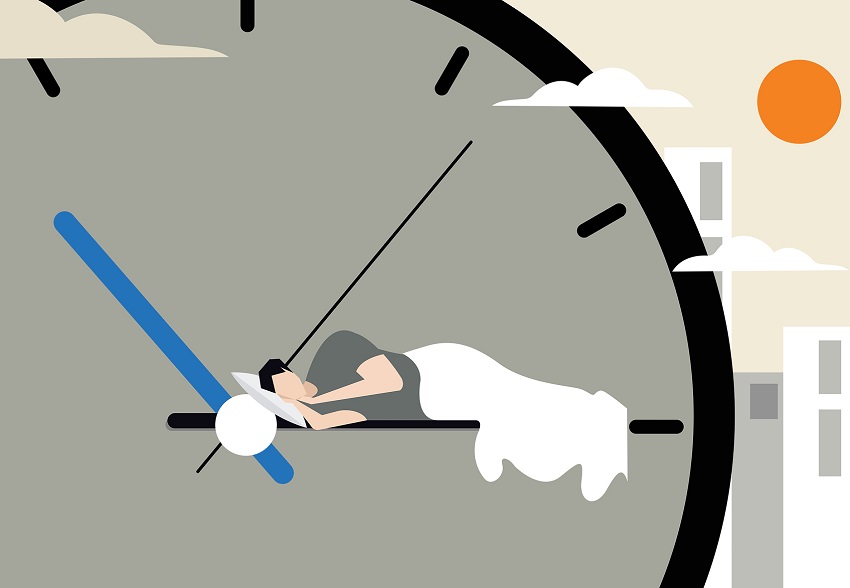
In our fast-paced and demanding world, getting quality sleep is essential for maintaining good health and overall well-being. But have you ever wondered what the healthiest sleep cycle is? In this article, we will delve into the different stages of sleep and explore the benefits of each, aiming to uncover the best sleep cycle for optimal health and productivity. The article is developed by myselfimprovementtoday.com
Understanding the Sleep Cycle
Before we can determine the healthiest sleep cycle, it’s important to understand the stages of sleep. The sleep cycle consists of four main stages, each with its own unique characteristics and significance.
Stage 1 – NREM Sleep
This is the lightest stage of sleep and acts as a transition from wakefulness to slumber. During this stage, our muscles relax, and we may experience sudden twitches. It is relatively easy to wake up during this phase and usually lasts only a few minutes.
Stage 2 – NREM Sleep
Stage 2 is a deeper form of sleep than Stage 1. Brain activity slows down during this phase, and our body temperature drops. It is a vital stage for memory consolidation and overall cognitive function. Explore what is polyphasic sleep.
Stage 3 – NREM Sleep
Also known as slow-wave sleep, Stage 3 is crucial for physical restoration and repair. During this stage, the body releases growth hormones, aiding in tissue and muscle recovery.
REM Sleep
Rapid Eye Movement (REM) sleep is where most of our dreaming occurs. This stage is vital for emotional processing, memory enhancement, and learning. During REM sleep, our brains are highly active, similar to when we are awake.
The Healthiest Sleep Cycle
Now that we understand the sleep stages let’s explore the healthiest sleep cycle.
Importance of Completing All Sleep Stages
To achieve the healthiest sleep cycle, it’s essential to go through all sleep stages adequately. Each stage plays a significant role in physical and mental restoration. Disruptions at any stage can lead to feelings of grogginess and fatigue during the day.
Prioritize REM Sleep
While all stages are crucial, REM sleep holds particular importance for our cognitive function. It is during this stage that our brains process emotions and solidify memories. To prioritize REM sleep, ensure you are getting enough total sleep duration.
Maintaining Consistency
Our bodies thrive on routine, so maintaining a consistent sleep schedule is vital. Try to go to bed and wake up simultaneously every day, even on weekends. Consistency helps regulate your internal clock, promoting better sleep quality.
Create a Relaxing Bedtime Routine
Establishing a calming bedtime routine can signal your body that it’s time to wind down. Consider reading, listening to soothing music, or practicing relaxation exercises. Avoid electronic devices with blue light, as they can disrupt your body’s natural melatonin production.
Optimize Your Sleep Environment
Your sleep environment can significantly impact your sleep quality. Make sure your bedroom is cool, quiet, and comfortable. Invest in a supportive mattress and pillows to ensure proper spinal alignment.
Limit Caffeine and Alcohol Intake
Caffeine and alcohol can disrupt your sleep patterns, so limiting their consumption is best, especially close to bedtime. Opt for herbal teas or warm milk instead to promote relaxation.
Stay Active During the Day
Regular physical activity can promote better sleep at night. Even if it’s just a brisk walk, engaging in exercise can help regulate your sleep-wake cycle.
Manage Stress
Stress and anxiety can wreak havoc on our sleep. Practice stress-reducing techniques such as meditation, deep breathing, or journaling to calm your mind before bedtime.
Avoid Heavy Meals Before Bed
Eating a large, heavy meal right before bed can lead to discomfort and indigestion. Try to have your last meal at least a few hours before bedtime.
Take Short Naps
Short daytime naps can be beneficial, but avoid napping too close to your regular bedtime, as it may interfere with your ability to fall asleep at night.
In conclusion, the healthiest sleep cycle involves adequately completing all sleep stages, emphasizing REM sleep. Prioritizing a consistent sleep schedule, creating a relaxing bedtime routine, and optimizing your sleep environment is essential for achieving restful sleep. By managing stress, limiting caffeine and alcohol intake, and staying physically active, you can significantly improve your sleep quality and overall well-being.
FAQs
Q1: How many stages are there in the sleep cycle?
A1: The sleep cycle consists of four stages: Stage 1, Stage 2, Stage 3, and REM sleep.
Q2: Why is REM sleep important?
A2: REM sleep is crucial for emotional processing, memory enhancement, and learning.
Q3: How can I improve my sleep environment?
A3: To optimize your sleep environment, ensure your bedroom is cool, quiet, and comfortable, and invest in a supportive mattress and pillows.
Q4: Can napping during the day affect my nighttime sleep?
A4: Short daytime naps can be beneficial, but avoid napping too close to your regular bedtime to prevent interference with nighttime sleep.
Q5: How does stress affect sleep?
A5: Stress and anxiety can disrupt sleep patterns and lead to difficulties falling asleep and staying asleep. Managing stress through relaxation techniques can improve sleep quality.


 Most Popular Songs With Baby in the Title
Most Popular Songs With Baby in the Title  The Songs Everyone Knows but Not the Name
The Songs Everyone Knows but Not the Name  Get Up and Dance! Songs Like Cupid Shuffle to Keep the Party Going
Get Up and Dance! Songs Like Cupid Shuffle to Keep the Party Going  How to Memorize Violin Note Chart Quickly?
How to Memorize Violin Note Chart Quickly? 

